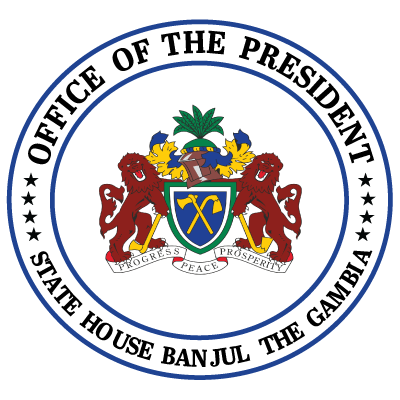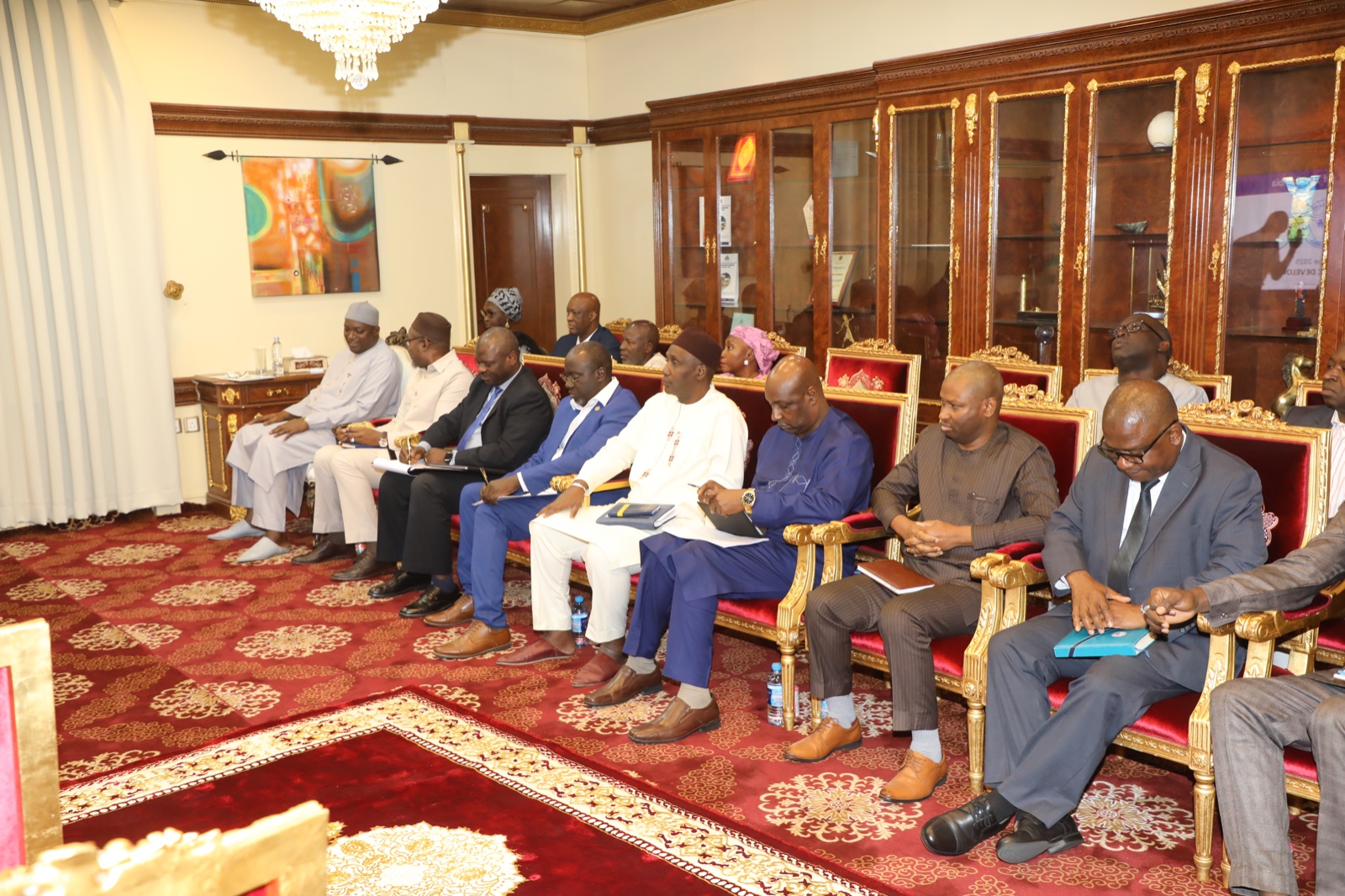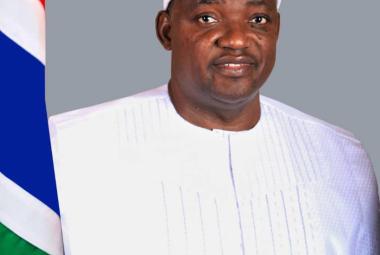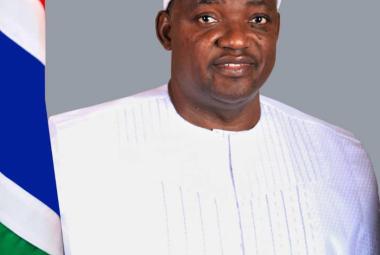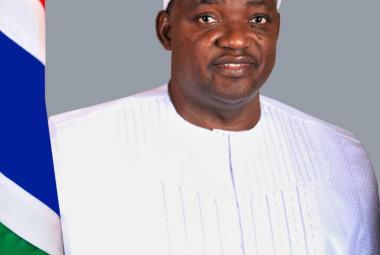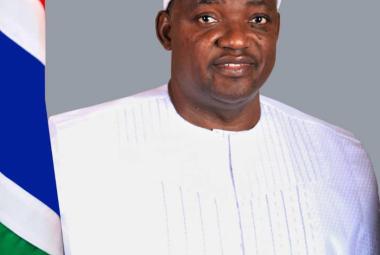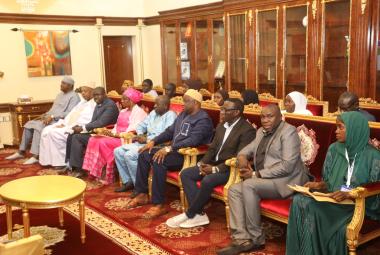State House, Banjul, 5th June 2025: The National Economic Council (NEC) on Wednesday, 4th June 2025, held its second quarterly meeting at the State House in Banjul to update the President, Vice President and relevant Cabinet Ministers on the state of the economy. The session, presided over by President Adama Barrow, discussed the rate of economic growth at global, regional, and national levels.
It reveals that while resource-led economies are challenged with growth, non-resource countries are growing, and The Gambia's growth surpasses the regional pace. Global protectionism is impacting inflation in the country and other Sub-Saharan African states. The Central Bank of The Gambia reports that commodity prices are volatile. The Gross Domestic Product (GDP) was 5% and the forecast is 6.3% in 2025. Food prices are driving inflation to 8.1%. In the first quarter of 2025, the exchange rate has stabilised and remittance has been recorded to the tune of $207.9 million, and the reserves stand at 4.3 months of import cover. Meanwhile, Domestic Debts declined during the same period to 45.4, while revenue-to-debt increased in the reporting period.
The Ministry of Finance and Economic Affairs updated the NEC on financial governance-related issues and the priority actions to include the fiscal and debt sustainability as well as resilience to natural disasters in risk assessment. Another important issue on the table was the need for a Public Private Partnership - PPP Act and others.
Noting Information Technology as a priority in governance, the Cabinet agreed to the use of digital platforms to ease Doing Business as soon as they are operationalised.
Another key development is the policy decision to include Technical and Vocational Education and Training (TVET) in the Madrasa system and the submission of the Civil Registry and Vital Statistics - CRVS Bill to the National Assembly, amongst other developments in the process of improving fiscal discipline.
The Gambia Revenue Authority (GRA) reported its latest collection at the end of April 2025, showing an increase of 20% of its target. In comparison to the same period in 2024, GRA has realised 27% growth, which has been associated with the positive impact of digitalising its systems. Overall, the January-April 2025 collection exceeded its target by 13%. It was also reported that the Digital Stamp makes up 56% of the revenue, further evidence of the effectiveness of e-invoicing. It is also working on the Rental Income Tax payment system to enhance collection.
The Accountant General's Department has realised the positive impact of digitalisation of its system, and it can capture the revenues from Ministries, Departments and Agencies (MDAs). It endeavours to close the gap between commitment and actual expenditure.
The Gambia Investment Enterprise Promotion Agency - GIEPA, during its update, shared new developments in investments, including air transport and other industrial investments, as they work to advance the Economic Zone and land banking.
On procurement management, The Gambia Public Procurement Agency- GPPA reported on the authorisation of MDAs and the need for human resources to support the assessment of their capacity to take responsibility for their respective procurement processes. This will enable GPPA to focus on oversight and monitoring upon amendment of the GPPA Act.
The Ministry of Trade reported on satisfactory stock levels of commodities with stability in prices. It raised concerns on the weight vis-à-vis the price of bread and the hygienic condition of some of the local bakeries. It also updated the council on the progress of the Special Economic Zones. Of the fifty-seven (57) migrant labourers who left for the Kingdom of Saudi Arabia, all have settled and are comfortable, except for two, and one of whom wants to return due to an undisclosed condition before leaving. In the case of migrant workers for Spain, thirty-nine (39) Gambians have been approved.
The Ministry of Agriculture and Livestock updated on the efforts to increase the number of commercial farmers in rice cultivation and the land development projects. It plans to embark on a land use survey to inform decision-making on the topology of the land country-wide, which is critical in land allocation for rice cultivation. It also stressed that young people need to be encouraged and supported to venture into agriculture and livestock rearing, and to create a steady market for other crops, as in the case of groundnuts.
In its presentation, the Ministry of Tourism, Arts and Culture shared its plan to further segregate the data on tourist arrivals, with further analysis of the visitors into various categories. It reported the increase in African tourists and The Gambia as a destination for various interest groups. Promotion of Eco-tourism and support for entrepreneurs in the sector are ongoing.
The quarterly National Economic Council meeting is initiated to enhance governance and timely executive interventions, overcome process bottlenecks and ensure effectiveness and efficiency.
